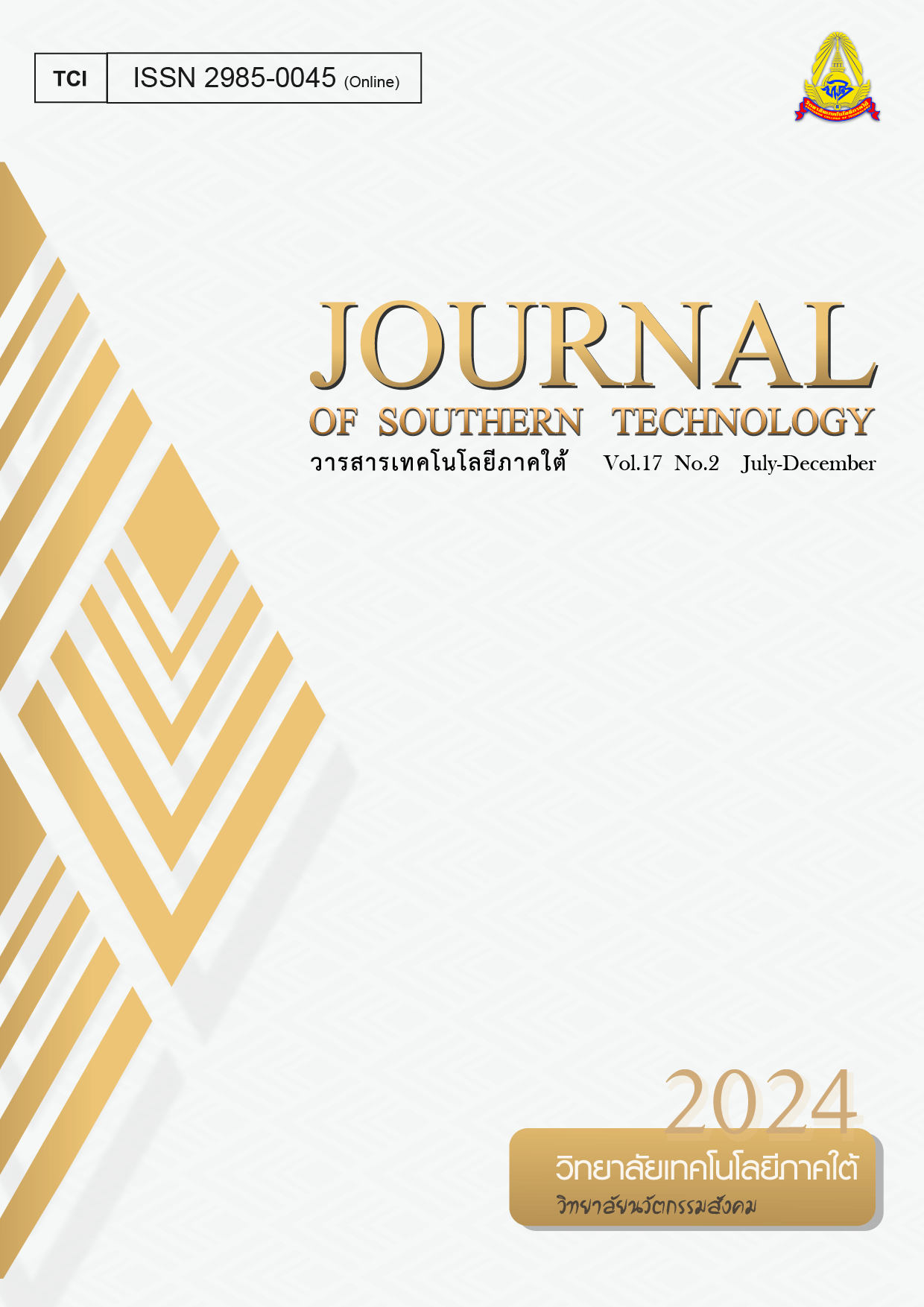ปัจจัยพหุระดับด้านการบริหารการศึกษาที่ส่งผลต่อคุณภาพการศึกษา ในศตวรรษที่ 21 ของสถานศึกษาสังกัดสำนักงานเขตพื้นที่การศึกษา มัธยมศึกษานครศรีธรรมราช
Main Article Content
บทคัดย่อ
การศึกษาในศตวรรษที่ 21 เป็นเรื่องสำคัญที่จะทำให้โลกเกิดการเปลี่ยนแปลงอย่างรวดเร็วทุกฝ่ายต้องให้ความสำคัญ ครูและบุคลากรทางการศึกษาจึงเป็นบุคคลสำคัญที่จะทำให้กระบวนการเรียนการสอนเป็นไปอย่างมีประสิทธิภาพ และเกิดประสิทธิผล โดยมีวัตถุประสงค์ในการวิจัยเพื่อ 1) ศึกษาปัจจัยระดับนักเรียน ระดับห้องเรียน และระดับโรงเรียนส่งผลต่อคุณภาพการศึกษาในศตวรรษที่ 21 2) สร้างโมเดลปัจจัยพหุระดับส่งผลต่อคุณภาพการศึกษาในศตวรรษที่ 21 กลุ่มตัวอย่างในการวิจัยเป็นผู้บริหารโรงเรียน จำนวน 40 คน ครูผู้สอน จำนวน 160 คน และนักเรียน จำนวน 800 คน ได้มาโดยวิธีการสุ่มแบบหลายขั้นตอน เครื่องมือในการวิจัยเป็นแบบสอบถาม 3 ฉบับ ใช้เทคนิควิเคราะห์พหุระดับแบบการวิเคราะห์เส้นทางในโมเดลสมการโครงสร้างด้วยโปรแกรมลิสเรล ผลการวิจัย พบว่า คุณภาพการศึกษาในศตวรรษที่ 21 ได้รับอิทธิพลทางตรงเชิงบวกจาก 1) ระดับนักเรียน ได้แก่ ทักษะผู้เรียนในศตวรรษที่ 21 และพฤติกรรมการเรียนรู้ ระดับห้องเรียน ได้แก่ ทักษะครูในศตวรรษที่ 21 และแรงจูงใจในการทำงาน ระดับห้องเรียนส่งผลต่อระดับนักเรียน ได้แก่ ทักษะครูในศตวรรษที่ 21 ระดับโรงเรียน ได้แก่ ทักษะการบริหารในศตวรรษที่ 21 และไม่มีปัจจัยระดับโรงเรียนที่ส่งผลต่อระดับห้องเรียน 2) โมเดลที่สร้างมีความสอดคล้องกับข้อมูลเชิงประจักษ์ มีค่าดัชนีความสอดคล้องดังนี้ χ2 = .13, GFI = 1.00, CFI = 1.00, SRMR = .00; χ2 = .36, GFI = 1.00, CFI = 1.00, SRMR = .01; χ2 = 3.00, GFI = .99, CFI = 1.00, SRMR = .03; χ2 = 5.44, GFI = .93, CFI = .97, SRMR = .07 ตามลำดับ โดยสามารถนำไปกำหนดกรอบนโยบายการพัฒนาคุณภาพการศึกษาในศตวรรษที่ 21
Article Details

อนุญาตภายใต้เงื่อนไข Creative Commons Attribution-NonCommercial-NoDerivatives 4.0 International License.
- ผู้เขียนต้องยินยอมปฏิบัติตามเงื่อนไขที่กองบรรณาธิการวารสารกำหนด และผู้เขียนต้องยินยอมให้บรรณาธิการ แก้ไขความสมบูรณ์ของบทความได้ในขั้นตอนสุดท้ายก่อนเผยแพร่
- ลิขสิทธิ์บทความเป็นของผู้เขียน แต่วารสารเทคโนโลยีภาคใต้คงไว้ซึ่งสิทธิ์ในการตีพิมพ์ครั้งแรก โดยเหตุที่บทความนี้ปรากฏในวารสารที่เข้าถึงได้จึงอนุญาตให้นำบทความไปใช้เพื่อประโยชน์ทางการศึกษา แต่มิใช่เพื่อการพาณิชย์
เอกสารอ้างอิง
Anderson, J., & Gerbing, D. W. (1984). The effects of sampling errors on convergence, improper solution and goodness of fit indices for maximum likelihood confirmatory factor analysis. Psychometrika, 49, 155-173.
Bass. (1985). Leadership and Performance Beyond Exportation. New York: The Free Press.
Bellanca, J., & Brandt, R. (2010). 21st Century Skills: Rethinking How Students Learn. Indiana Solution Tree Press.
Braun Jerry Bruce. (1991). An analysis of principal leadership vision and its relationship to school climate. Dissertation Abstracts International, 52(4), 1139-A.
Chantarakee, S. (2018). The multi-level structural equation model of quality of secondary school students in the three southern border Provinces. Phuket Rajabhat University Academic Journal, 14(1), 382-402. [in Thai]
Chumpanil, K. (2017). A multilevel causal model of innovative organization factors affecting teaching performance of teacher 21st century skills. Journal of Education Graduate Studies Research, 11(3), 25-35. [in Thai]
Cronbach, L. J. (1990). Essentials of Psychological Testing (5th ed.). New York: Harper Collins.
Delany, H. (2019). Education for the 21st Century. Retrieved September 16, 2020, form https://www.unicef.org/thailand/th/stories. [in Thai]
Education Council Secretariat. (2017). National Education Plan 2017 - 2036. Bangkok:Phrikwangraphic Printing House. [in Thai]
Ekphachaisawat, T., & Kitjarak, T. (2022). Approach for academic performance development by using Bloom’s taxonomy. Lawarath Social E-Journal, 4(1), 183-201. [in Thai]
Idris, A. (2010). Administering secondary schools in Nigeria for quality output in the 21st century: the principals’ challenge. European Journal of Educational Studies, 2(3), 186-192.
Intasit, N. (2020). The Multi-Level Causal of the Academic Affair Administration Effectiveness of World-Class Standard Schools Under the Office of the Secondary Education Service Area in Bangkok (Doctoral Dissertation). Phayao University, Phayao Province. [in Thai]
Janet, H. (2017). Testing the difference between school level and academic mindset in the classroom: Implications for developing student psycho-social skills in secondary school classrooms. Journal of Education, 3(1), 44-63.
Kaniam, S. (2018). Academic Management Strategies of Armed Forces Academies Preparatory School Based on the Concept of the 21st Century Skills (Doctoral Dissertation). Chulalongkorn University, Bangkok Province. [in Thai]
Kanjanawasi, S. (2011). Multilevel Analysis (5th Printing). Bangkok: Chulalongkorn University Printing House. [in Thai]
Kara, A. (2022). Investigating the link between teachers’ perceptions of 21st century skills efficiency and students’ perceptions of learning experience: Mediating role of teacher’s self-efficacy. Journal of Pedagogical Research, 6(4), 50-65.
Khali, P. (2017). Development of Evaluation Instrument for Teaching Efficiency of 21st Century under Primary Educational Service Area in Three Southern Border Provinces of Thailand (Master’s Thesis). Prince of Songkla University, Songkla Province. [in Thai]
Khowtrakun, S. (2022). Educational Psychology (14th Printing). Bangkok: Chaulalongkorn University Printing House. [in Thai]
Kimani, G. N., Kara, A. M., & Njagi, L. W. (2013). Teacher factors influencing students’ academic achievement in secondary schools in Nyandarua County, Kenya. International Journal of Education and Research, 1(3), 1-14.
Lardlao, A. (2018). An Analysis of Multi-Level Factors Affecting the Third Year Vocational Certificate Students’ Research Skills Under the Jurisdiction of the Office of the Vocational Education Commission (Doctoral Dissertation). Burapha University, Chonburi Province. [in Thai]
Li, Z., & Qiu, Z. (2018). How does family background affect children’s educational achievement? evidence from contemporary China. The Journal of Chinese Sociology, 5(13), 1-21. https://doi.org/10.1186/s40711-018-0083-8
Muthen, L. K., & Muthen, B.O. (2012). Mplus User’s Guide (7th Printing). CA: Muthen, & Muthen.
Panich, V. (2014). Ways to Create Learning for Students in the 21st Century (4th Printing). Bangkok: Tathata Printing House. [in Thai]
Namnu, M. (2018). The Skills of School Administrators in the 21st Century under Pathum Thani Primary Educational Service Area Office 2 (Master’s Thesis). Rajamangala University of Technology Thanyaburi, Pathum Thani Province. [in Thai]
Phaengsrisara, B. (2018). New century executive education features. Journal of MCUNan Review, 2(2), 131-141. [in Thai]
Pholphong, L. (2016). The multi-level factors affecting the effectiveness of schools under the office of the basic education commission using English as the medium of instruction. Journal of Yala Rajabhat University, 11(1), 103-120. [in Thai]
Prommajaree, P. (2018). The Multi-level Factors Affecting to Students Quality of Primary School Under the Offices of Primary Educational Service Area in the Northeast (Doctoral Dissertation). Udon Thani Rajabhat University, Udon Thani Province. [in Thai]
Punpumpor, N. (2017). The Factors Affecting the Success of School Administration of the School Under Secondary Educational Service Area Office (Master’s Thesis). Burapha University, Chonburi Province. [in Thai]
Sahito, Z. (2021). Job satisfaction and the motivation of teacher educators towards quality education: a case study approach. Sylwan, 165(11), 46-64.
Saokaeo, V. (2018). Factors affecting primary schools effectiveness under the chachoengsao primary educational service area office 1. Rajabhat Rambhai Barni Research Journal, 12(2), 59-70. [in Thai]
Yosrungroch, W. (2017). Factors affecting the quality of students of the border patrol police schools under border patrol police sub- division 33. Ganesha Journal, 13(1), 97-115. [in Thai]
Wongkitrungruang, W., & Chittaruek, A. (2019). 21st Century Skills: Rethinking How Students Learn (3rd Printing). Bangkok: Books Cape. [in Thai]
Wongsanao, T. (2021). An Analysis of Multilevel Factors Affecting the Effectiveness of Small-Sized Primary Schools in the Regional Education Office No.11. (Doctoral Dissertation). Sakon Nakhon Rajabhat University, Sakon Nakhon Province. [in Thai]

